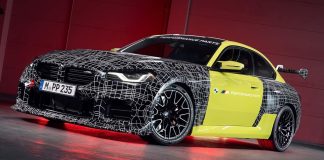Porsche has unveiled its most powerful production vehicle ever: the all-electric Cayenne Turbo. With a staggering 1,139 horsepower, it accelerates from 0 to 62 mph in just 2.5 seconds – performance figures that rival hypercars. But this luxury SUV comes with a significant catch: it’s also the heaviest road-going Porsche ever built.
A New Peak in Power… and Weight
The Cayenne Electric Turbo boasts a curb weight of 5,831 lbs (2,645 kg) under DIN standards, or 5,997 lbs (2,720 kg) according to the EU Directive (including a 165-lb driver). This makes it heavier than many full-size pickup trucks. For comparison, the new BMW M5 sedan weighs in at 5,390 lbs (2,444 kg), while the M5 Touring reaches 5,530 lbs (2,508 kg). The Cayenne surpasses both with considerable margin.
Even the Ford F-150 Raptor (5,710 lbs / 2,590 kg) appears relatively light by comparison. The Porsche even approaches the weight of the more aggressive Raptor R (5,950 lbs / 2,698 kg). The electric Cayenne is roughly on par with the Hyundai Ioniq 9 (5,523–5,908 lbs / 2,505–2,680 kg), though the Ioniq 9 is a larger, three-row vehicle.
The Trade-Off: Performance vs. Mass
The Cayenne’s immense power is undeniable, but the sheer weight raises questions about handling and agility. While Porsche hasn’t released detailed chassis information, concealing over 6,000 lbs of mass in a performance SUV will be a major engineering challenge. This highlights a critical trend in high-performance EVs: power increases often come at the expense of weight.
The Cayenne Electric’s 488-mile range (urban driving) is impressive, but the trade-off of extreme mass may affect real-world efficiency and driving dynamics. The Rivian R1S Quad Motor (6,824 lbs / 3,169 kg) is even heavier, yet delivers less horsepower (1,025 hp).
Porsche’s EV Shift: A Broader Picture
The launch of the Cayenne Electric occurs as Porsche accelerates its EV strategy. The company previously considered selling future Cayman and Boxster models exclusively as electric vehicles. Plans for a larger, seven-seat SUV (codename K1) were also in development as an EV-only model. Porsche’s commitment to electrification is clear, but the Cayenne’s weight suggests the transition won’t be without compromises.
The Cayenne Electric represents the latest push for extreme performance in EVs, but it also underscores the industry’s ongoing struggle to balance power with manageable weight. The SUV’s success will depend on whether Porsche can overcome this fundamental challenge and deliver a driving experience that lives up to the brand’s reputation.























